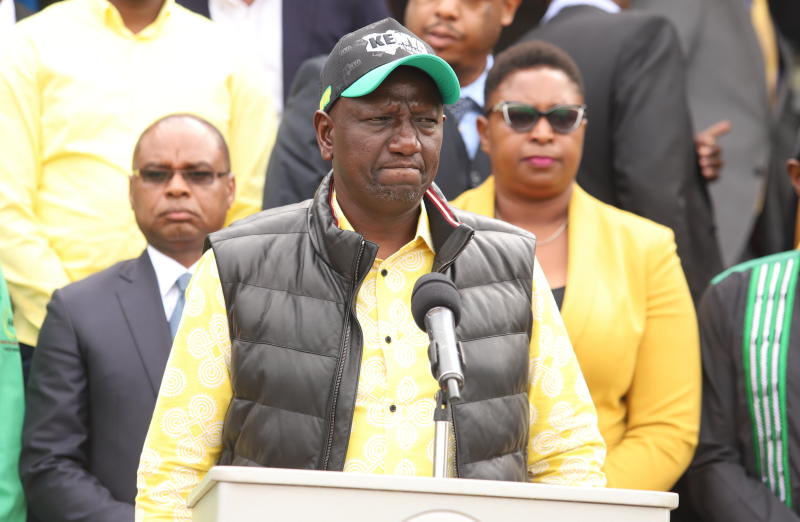Kenya Kwanza Presidential candidate William Ruto addresses the media at a past event. [Denish Ochieng, Standard]
×
The Standard e-Paper
Stay Informed, Even Offline

Kenya Kwanza Presidential candidate William Ruto addresses the media at a past event. [Denish Ochieng, Standard]
If you missed it, Kenya Kwanza presidential aspirant, Dr William Ruto, has promised to 'reverse' what the media captured as “Uhuru’s Port, SGR deals” should he win the August poll. Azimio presidential candidate Raila Odinga has been quoted on a number of occasions saying, “I will jail corrupt persons” should voters contract him as the next State House occupant.